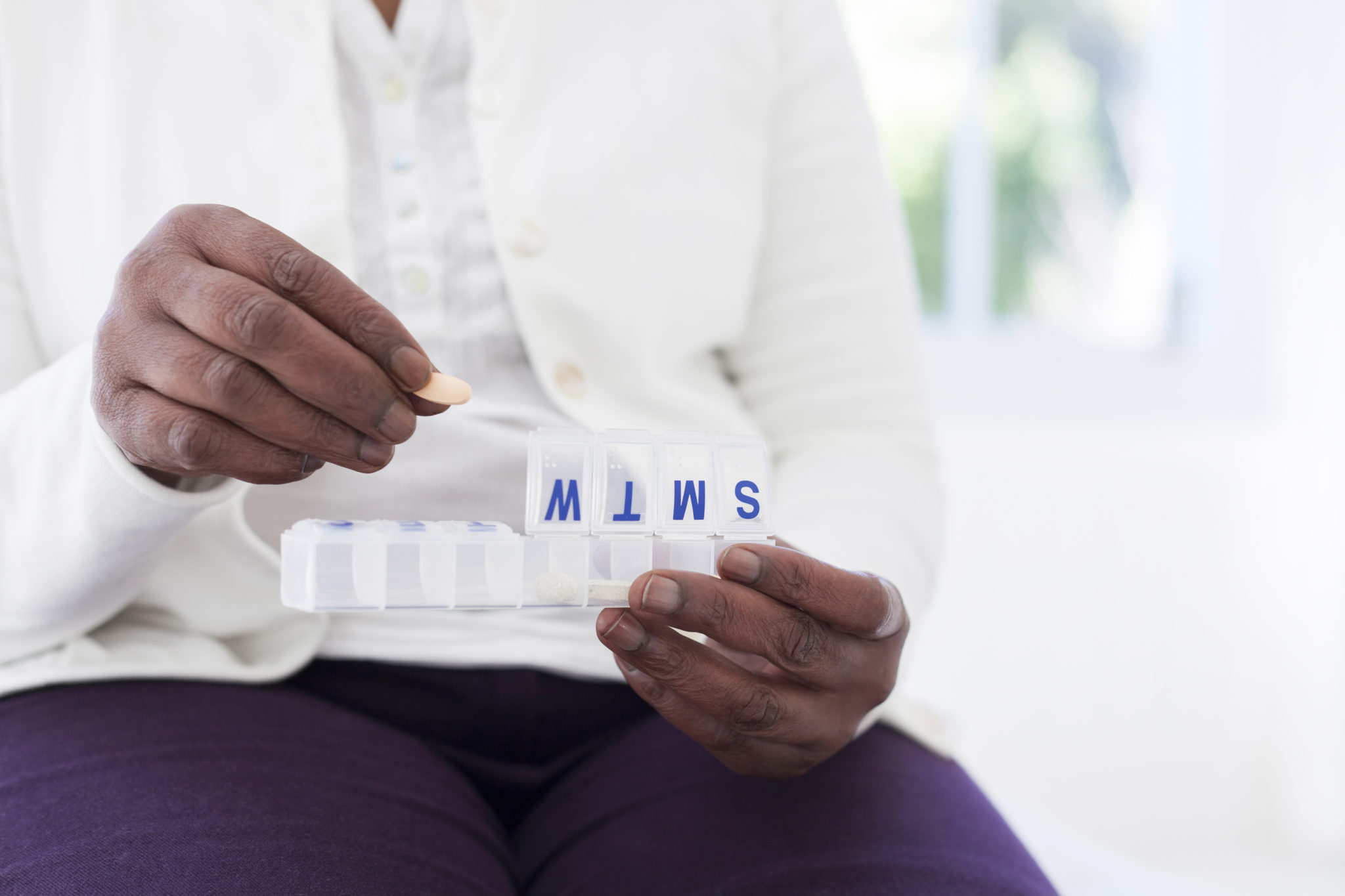Are patients taking their medications correctly, and are the medicines working? A handful of digital health startups tries to make it easier to tell — say, by embedding a tracking system into pills they swallow.
Only 25% to 50% of patients worldwide take medications correctly, and in the U.S., roughly 125,000 people die annually from not correctly taking their prescriptions, according to a 2018 study led by Leah Zullig, a health services researcher at the Duke University School of Medicine.
Failure to take prescribed medicines also increases costs to the healthcare system, by about $300 billion annually, Zullig estimates. Jonathan Watanabe, an associate professor of clinical pharmacy at UC San Diego’s Skaggs School of Pharmacy & Pharmaceutical Sciences, says that number would likely be even higher if you included what it costs hospitals to treat symptoms that arise from improper medicine intake (for example, patients with high blood pressure who have strokes as a result of not taking their medicines)—more than $500 billion annually, or 16% of U.S. healthcare costs, he estimates.
READ MORE |Internet In Our Bodies?
For the most part, the responsibility has been in the hands of the patient. Think pill boxes marked with the days of the week, or their high-tech versions—apps, like Medisafe and CareClinic, that help users self-report their own intake and schedules. These reminder devices don’t go far enough, say some doctors, because they fail to address a very human fault that patients report as their primary reason for not taking their medication: forgetfulness.
Loading...
We Are Our Own Prince Charming
“We need to take responsibility for our own health and care, but when it comes to drug-taking and medication use, that may not be sufficient,” says Dr. Niteesh K. Chouhdry, a professor of medicine at Harvard Medical School and executive director of the Center for Healthcare Delivery Sciences at Brigham & Women’s Hospital in Boston. “We need to leverage these devices in a way that closes the loop—doctors to pharmacists to patients back to pharmacists.”
Proteus Digital Health, a Redwood City, California-based tech health startup, hopes to create that loop. Founded in 2004 by Andrew Thompson and Dr. George Savage, the company makes a 1 millimeter sensor—“the size of a poppy seed or grain of sand,” says Thompson—that is embedded in medications, which are then swallowed.
The sensor, made of “elements found in a typical diet,” including magnesium and copper, says Thompson, will turn on when it contacts a patient’s stomach acid. It then sends a signal a the palm-size patch that patients wear on their skin. The patch, which also tracks physiological signs like steps, rest and heart rate, then sends information to a smartphone app for patients and the desktop browser portal that doctors use.
READ MORE | IN PICTURES | Is vaping really helping you quit traditional tobacco cigarettes?
The idea for the system, called Proteus Discover, came to Thompson during an American Heart Association conference in 2003. Thompson, who had previously started two medical device companies with Savage, including the publicly traded FemRx, which was acquired by Johnson & Johnson for $22 million in 1998, noticed that none of the companies presenting at the conference were doing anything with digital technologies.
“Silicon and software was innovating every other industry at the time except for pharma,” Thompson says. So he brought his idea for a medicine that communicates with a computer to Savage.
“George looks at me and says, ‘That is the stupidest idea you’ve had in your entire life.’ And then we began to argue,” Thompson says.
In 2017, the FDA approved an antipsychotic drug with Proteus technology, the agency’s first-ever approval for a medicine with digital ingestion tracking system. Abilify MyCite, the drug made with Tokyo-based Otsuka Pharmaceutical, treats schizophrenia, bipolar disorder, depression and Tourette syndrome.
The company has raised $420 million in venture capital funding from investors including Novartis Venture Fund and Kaiser Permanente Ventures at a $1.5 billion valuation. Otsuka, which has a special focus on mental health drugs, announced in October 2018 an $88 million investment in Proteus to continue developing other medications that use the tech-health venture’s ingestible sensors. More than 1,000 patients have used the pill-tracking system, amounting to 195,000 pill ingestions, says the company.
EtectRx, Keratin Biosciences
Other companies have sprung up in the drug delivery space, including etectRx, a Newberry, Florida, health-tech startup with a similar digital health system model. Instead of working with a pharmaceutical company to embed its sensors in a pill, etectRx creates an empty gelatin capsule with an embedded wireless sensor. Its capsule has not received FDA clearance yet, but it can be used in clinical studies that have been approved by the agency’s Institutional Review Board, a committee that reviews and monitors scientific research.
Keratin Biosciences (formerly Microchips Biotech and KeraNetics before the two merged in July 2018) wants to improve medication intake by getting rid of human error altogether. Instead of a pill, this Lexington, Massachusetts, company makes a microchip with hundreds of sealed compartments, each of which can store up to 1 milligram of a drug.
The chip, which originated in a lab at the Massachusetts Institute of Technology, can be activated by a wireless signal that triggers the compartments to release the drug, based on a preprogrammed dosing schedule.
Digital health startups must figure out how to get the new drug delivery methods they are delivering to patients and consumers in a scalable way, which will require collaboration and a commitment from Big Pharma. “The core thing we want the pharmaceutical industry to understand is that we want to integrate silicon software into the definition of their products in order to make information and data a part of what they do,” Thompson says.
READ MORE | Would You Seek Medical Care In Africa’s Public Sector?
Then there is the matter of consumer hesitance about swallowing hardware that records private activity. While these inventions are meant to help patients, the monitoring aspect has raised privacy concerns from consumer advocates who worry that the information will eventually be shared not just with doctors but with insurers who want to raise premiums or even employers who want to know what drugs a job candidate is taking.
“Security of the data is very important, but in medicine, privacy can be lethal,” Thompson argues. He says that the main issue is not so much privacy but whether companies make it clear to patients where their data is going. “People are happy to share information and data if they know and understand exactly what it is being used for.”
Proteus can claim its smart pills are effective, but it’s still early for most startups that aim to improve the way patients take their medicine.
“This is a tough problem to fix,” says Choudhry from Harvard. “It’s all about forgetfulness, and that is a complex and, frankly, normal behavior.”
-Angel Au-Yeung; Forbes Staff
Loading...





















